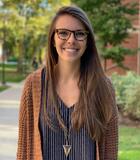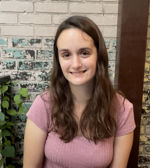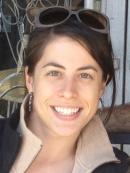Lab Members
|
DIRECTOR |
|||||||
|
|
Jutta Joormann is a Professor in the Department of Psychology and is currently serving as Department Chair. She received her doctoral degree from the Free University of Berlin and joined the Yale Psychology Department in 2014 after working at Stanford University, the University of Miami, and Northwestern University. Her main areas of interest include the identification of cognitive risk factors for depression and the role of emotion regulation in psychopathology. Her current work examines attention and memory processes in depression and how these are linked to rumination and emotion dysregulation. In her work, she integrates a multitude of measures, including cognitive tasks, psychophysiological measures of stress reactivity and regulation, eye tracking, neuroendocrine assessments, and brain imaging. Email: jutta.joormann@yale.edu |
||||||
|
|||||||
|
GRADUATE STUDENTS |
|||||||
|
|
Wisteria Deng is a sixth-year PhD candidate in clinical psychology, co-mentored by Dr. Jutta Joormann and Dr. Tyrone Cannon. After graduating from the University of Michigan, she worked under Dr. Daphne Holt at the Mass General Hospital, where she studied the altered fear mechanisms in people with persecutory beliefs and helped develop mindfulness-based interventions for at-risk college students. Wisteria’s research focuses on examining the cognitive mechanisms shared between psychosis and affective illnesses (e.g., belief inflexibility, emotion regulation), especially at the at-risk stage. She is completing her clinical internship at Yale School of Medicine. Email: wisteria.deng@yale.edu |
||||||
 |
Jessica (Jessie) Duda is a fourth-year PhD student in clinical psychology. She obtained her B.A. from Tufts University in 2015 with dual degrees in Economics and International Relations. She worked for several years in the financial services industry before launching her psychology research career. Prior to starting at Yale, Jessie worked with Dr. Diego Pizzagalli at the Laboratory for Affective and Translational Neuroscience at McLean Hospital, where she investigated the neural correlates of stress reactivity in major depression. She is interested in the effects of trauma and life stress across development on cognitive and neurobiological functioning. In her spare time, Jessie enjoys playing the fiddle and hiking in the New England woods. Email: jessica.duda@yale.edu |
||||||
 |
Yueyue (Lydia) Qu is a fifth-year PhD student in the department of psychology. She earned her BA in Psychology and Mathematics from Washington University in St. Louis in 2021. As an undergraduate, she worked with Drs Ryan Bogdan and Deanna Barch on projects exploring baseline correlates of psychopathology including depression, substance use and ADHD in the ABCD study. In her first two years at Yale, her work with Dr. Avram Holmes utilized predictive modeling to uncover distinct network predictors of internalizing and externalizing psychopathology in the ABCD study. Here in the ARC lab, she is interested in how exposures to specific major life stressor features shape the development of different types of self-schemas which are associated with symptom heterogeneity across individuals in mood disorders and PTSD. Email: lydia.qu@yale.edu |
||||||
 |
Jihyun Hur is a third-year Ph.D. student in clinical psychology. She is broadly interested in using language, neuroimaging, and behavioral data to understand and predict depression. After graduating with a BSBA in Accounting from Washington University in St. Louis, she completed her MA in Clinical Psychology at Seoul National University supervised by Dr. Woo-Young Ahn. In her MA research, she investigated the association between worry and model-based reinforcement learning. Afterwards, she worked with Dr. Robb Rutledge at Yale for two years and applied computational modeling and language processing to study mood dynamics and future symptom severity in people with depressive symptoms. Jihyun hopes to develop tools to systemically translate multi-dimensional, naturalistic information into low-dimensional data and use them to help individuals with depression and anxiety. Email: jihyun.hur@yale.edu |
||||||
 |
Yutong Zhu is a first-year PhD student in Clinical Psychology. She obtained her B.S. in Psychology and Educational Studies from Trinity College and her M.A. in Clinical Psychology from Teachers College, Columbia University. Broadly, Yutong is interested in emotion regulation and cognitive flexibility as transdiagnostic mechanisms underlying depression and anxiety. She uses a range of methods—including experimental paradigms, ecological momentary assessment, and computational modeling—to investigate how individuals adapt to emotional challenges in daily life. Outside of research, Yutong is passionate about science fiction, movies, and discovering new food spots. Email: yutong.zhu@yale.edu |
||||||
| VISITING GRADUATE STUDENTS | |||||||
 |
Svenja Gross (Groß) is a Graduate Exchange Scholar from Heidelberg University and a Fulbright grantee at the ARC Lab. Her research examines emotion regulation in daily life, focusing on emotion-regulation flexibility as a predictor of depressive symptoms and the efficacy of emotion-regulation therapies for ADHD. She received her B.Sc. from the University of Bremen and her M.Sc. from Heidelberg University, where she is beginning her Ph.D. in Clinical Psychology. Outside of research, she enjoys going to the gym, swimming, traveling, and hiking. Email: svenja.gross@yale.edu |
||||||
 |
Miranda is a visiting third year PhD student, supervised by Professor Jutta Joormann. Miranda’s research is about how mood and behavior are influenced by appetite (e.g. feeling ‘hangry’ when you get hungry). She is running an ecological momentary assessment (EMA) to assess this phenomenon naturalistically and examine the impacts on real-life social interactions. The rest of Miranda’s PhD is at University College London where she is supervised by Professors Argyris Stringaris and Essi Viding. In the first two years of Miranda’s PhD, she developed a questionnaire to measure hunger-related mood dysregulation, and validated it associations with mental health symptoms and task-based mood induction in adults and adolescents. Outside of research, Miranda enjoys going to the theatre, watercolor painting and hiking. Email: miranda.copps@yale.edu |
||||||
|
ALUMNI
|
|||||||
 |
Bailey Holt-Gosselin received her PhD from the Interdepartmental Neuroscience Program (INP) co-mentored by Dr. Jutta Joormann and Dr. Dylan Gee in 2025. After receiving a BS in Neuroscience from the University of Vermont in 2017, she participated in the Summer Program for Undergraduate Research in Life and Biomedical Sciences (SPUR-LABS) at UCLA, where she investigated effort-based decision making in adolescents under the mentorship of Dr. Adriana Galván. Afterwards, Bailey worked as a research lab manager in Dr. Leanne Williams’ clinical neuroscience lab at Stanford for three years, where she led neuroimaging studies and clinical trials in adults with anxiety and depression. Bailey’s research is focused on elucidating the neural, behavioral, and environmental factors that influence risk and development of psychopathology in children and adults. Outside of the lab, she likes to dance, explore nature, shop at trader joes, and listen to podcasts on long walks. Dr. Holt-Gosselin is currently a postdoctoral fellow at Harvard Medical School. |
||||||
 |
Kelley Gunther was a Susan Nolen-Hoeksema Postdoctoral Fellow at Yale and worked with Drs. Jutta Joormann and Dylan Gee. She completed her B.S. in Psychology at the University of Maryland working with Dr. Nathan Fox, and post-bac training with Dr. Dima Amso at Brown University. She completed her Ph.D. in Developmental Psychology at Penn State University in 2022, working with Dr. Koraly Pérez-Edgar and Dr. Charles Geier. Kelley is interested in the interaction between temperamental, attentional, and contextual risk factors for anxiety disorders in children. She also aims to emphasize ecologically valid testing paradigms to better understand how these processes unfold in the “real world” and beyond laboratory environments. Outside of work, Kelley enjoys hiking, traveling, and rock climbing. |
||||||
 |
Ashleigh Rutherford was a 2023 graduate of the Clinical Psychology PhD program at Yale. She graduated from Amherst College in 2016 with an honors degree in Psychology and English. Before arriving at Yale, Ashleigh worked under the supervision of Dr. Diego Pizzagalli at McLean Hospital/Harvard Medical School multi-modally studying differential reward processing abnormalities that contribute to unipolar and bipolar depression. Her research focuses on cognitive mechanisms—particularly working memory—that may contribute to anhedonia in major depression. |
||||||
 |
Nicola Hohensee was a visiting scholar in the ARC lab and a PhD student from the University of Muenster, Germany. Her research focuses on emotional and cognitive processes that contribute to the development, maintenance, and reduction of mental disorders, especially emotional clarity, emotion regulation strategies, and cognitive biases. She obtained her B. Sc. in Psychology from the Humboldt University Berlin in 2016 and her M. Sc. in Clinical Psychology and Experimental Psychopathology from the University of Muenster in 2018. Since 2022 she is a licensed cognitive behavioral therapist in Germany. In her spare time, Nicola enjoys traveling, hiking, dancing, and drinking coffee in cozy places. | ||||||
 |
Reuma Gadassi-Polack was a Rothschild Postdoctoral Fellow in the ARC lab. She received her doctoral degree in Psychology from Bar-Ilan University, and her M.A. in Educational and Clinical Child Psychology (with honors), and B.A. in Psychology and Literature (with high honors) from the Hebrew University of Jerusalem. Reuma’s research focuses on the affective and interpersonal aspects of depression and personality disorders. In the ARC lab, she worked on a project investigating risk factors for depression development. Specifically, she examined affective reactivity and regulation in response to interpersonal events in adolescents at familial risk for depression. To approach these questions she utilized various methods, including cognitive tasks, experience-sampling methods, and brain imaging. |
||||||
 |
Erica Ho is a 2022 graduate of the Clinical Psychology PhD program at Yale, and completed her clinical internship at VA Puget Sound, Seattle Division. She received her BA from Cornell University in 2013, with a major in psychology and minors in cognitive science and music. As an undergraduate, she studied the impact of ambiguous social exclusion on mood, under the supervision of Dr. Vivian Zayas. She then worked as a research coordinator under Dr. Michael Milham at the Child Mind Institute’s Center for the Developing Brain, on large-scale studies aiming to discover biological markers of mental health across the lifespan. Here in the ARC Lab, Erica’s dissertation examined ways in which intra- and inter-individual contexts associate with the perception and interpretation of social-emotional signals from others. She uses a range of methods including functional neuroimaging, computational modeling, online behavioral experiments, as well as daily diaries. As of 2022, Erica is a postdoctoral fellow in Rehabilitation Psychology at VA Puget Sound, Seattle Division. There, she is pursuing advanced clinical and research training in service of enhancing the wellbeing and social role participation of individuals with disabilities and chronic medical conditions such as cancer. |
||||||
|
Colin Stanton received his PhD in clinical psychology in 2021 and completed his clinical internship at the Institute of Living in Hartford, Connecticut. He graduated from McGill University in 2010. Before arriving at Yale, Colin worked under the supervision of Dr. Randy Auerbach, with whom he investigated behavioral and neurobiological factors that contribute to depression in adolescents. His research currently focuses on anhedonia, the loss of pleasure and/or lack of motivation associated with several psychiatric conditions, including depression. Colin is particularly interested in understanding the links between psychological stress and anhedonia from a cognitive and neurobiological perspective. | ||||||
 |
Ema Tanovic received her PhD in Clinical Psychology from Yale in 2020. She completed her clinical internship at Pennsylvania Hospital/University of Pennsylvania Health System. Before coming to Yale, she graduated with high honors from Wesleyan University in 2014. Broadly, Ema’s research investigates the cognitive, affective, and behavioral mechanisms of anxiety. She is particularly interested in understanding how people respond to uncertainty and how heightened sensitivity to uncertain situations may confer risk for the development of internalizing psychopathology. Her dissertation focused on the development of a novel paradigm to study avoidance under uncertain threat. Ema currently works at The Boston Consulting Group. |
||||||
 |
Elizabeth (Libby) Lewis is a 2020 graduate of the Yale Clinical Psychology PhD program. Libby completed internship at McLean Hospital/Harvard Medical School. She received her BA from Cornell University in 2012, with a major in psychology and a minor in music. Before coming to Yale, she worked at NIMH in the Section on Affective Cognitive Neuroscience with James and Karina Blair, with whom she investigated the neural and cognitive underpinnings of Generalized Anxiety Disorder and Social Phobia in adults. She uses multiple methodologies, including eye tracking, peripheral psychophysiology, and neuroimaging, to approach questions involving the relation between cognition and emotion in processes that are cardinal to mood and anxiety disorders, such as worry and rumination. Libby is currently a post-doctoral fellow at McLean Hospital/Harvard Medical School. |
||||||
|
|
Michael Vanderlind received his B.S. in Psychology from The University of Texas at Austin in 2011 and completed his internship at Weill Cornell Medical College/New-York Presbyterian Hospital. His research examines how people respond to positive emotion and how individual differences in the regulation of positive emotion relate to affective psychopathology, particularly major depression. Michael also studies how clinical disorders and emotion dysregulation more generally affect cognitive processes such as attention, memory, and executive control. Michael uses multiple research methods, such as neuropsychological tests, clinical interviews, and electroencephalography, to address these aims. In his spare time, Michael enjoys eating his way through New York City, running along the East River, and returning to New Haven to visit his lab mates. |
||||||
|
|
Hannah Raila is currently a postdoctoral research at Stanford University, where she studies visual attention to obsession-related cues in OCD. She received her PhD in 2018 from Yale University, where she bridged cognitive and clinical labs to study how the visual “diet” of information that we consume underlies both positive emotion and psychopathology. To explore such topics, she primarily uses eye tracking, continuous flash suppression (CFS), and behavioral tasks. |
||||||
|
|
Meghan Quinn is currently a postdoctoral fellow at Vanderbilt University. She received her PhD in 2017 from Northwestern University. Her research examines individual differences in stress-sensitive cognitive processes and physiological systems. The goal of this work is to identify factors contributing to depression. |
||||||
|
|
Kimberly Arditte graduated in 2016 from the University of Miami. She is currently an Advanced Research Fellow in Women’s Mental Health at the National Center for Posttraumatic Stress Disorder (PTSD) at the VA Boston Healthcare System. Her research focuses on identifying and attenuating transdiagnostic risk, including cognitive, emotional, and trauma-related factors, for affective disorders in women. She is also increasingly interested in trauma-related rumination as a factor that may explain the comorbidity between PTSD and depression and may represent a transdiagnostic target of intervention. She continues to collaborate with Dr. Joormann and other members of the ARC lab on projects related to these interests. |
||||||
|
|
Vera Vine is currently an NIH T32 Postdoctoral Scholar at the University of Pittsburgh/Western Psychiatric Institute and Clinic. She graduated from Harvard University with a bachelor’s degree in psychology. As a graduate student at Yale, where she earned a doctorate in 2016, she studied the role of emotional awareness in emotion regulation, depressive rumination, and mood-related disorders. Currently her work focuses on the role of self-awareness of emotional and physiological states in predicting emotion regulation difficulties and the prospective onset and course of depression among at-risk individuals. |
||||||
|
|
Catherine D’Avanzato is currently a psychologist in the Rhode Island Hospital Partial Hospital Program, within the Department of Psychiatry and Human Behavior at Brown University Medical School. She graduated from Northwestern University in 2005 and was a graduate student in the lab from 2007 to 2012. Her research investigates the role of cognitive and biological processes in difficulties with emotion regulation among individuals with depression and anxiety disorders. Her dissertation examined the relation between cognitive biases with the effectiveness of reappraisal, indicated by self-reported mood and physiological indices. Her current research focuses on integrating empirically supported assessment and intervention techniques into routine clinical settings, with the goal of enhancing effective emotion regulation among individuals with these disorders within a partial hospital setting. |
||||||
|
|
Tanya Tran is currently a Staff Psychologist at the Rhode Island Hospital Mood Disorders Program. She graduated with Honors from the University of Pennsylvania in 2004 and received her doctoral degree in Clinical Psychology from the University of Miami in 2012. She recently completed a research fellowship in the Psychosocial Research Program at Butler Hospital through the Alpert Medical School of Brown University Clinical Psychology Training Consortium. The primary goal of her research is to gain a better understanding of how basic cognitive processes and individual differences in emotion regulation (ER) increase vulnerability to, maintain, and hinder recovery from mood and anxiety disorders. By examining cognitive factors which contribute to the onset and maintenance of depression, she also hopes to develop more effective treatment and prevention programs. Currently, she is examining the role of social media sites, such as Facebook, on emotion regulation and their subsequent impact on emotional well-being. She intends to apply this line of research to develop a novel, Internet-based intervention for depression to reach a broader population. |
||||||
|
|
Joelle LeMoult received her doctoral degree from the University of Miami in 2012 and is currently a Postdoctoral Fellow at Stanford University. The overarching goal of her research is to further our understanding of the etiology, maintenance, and treatment of major depressive disorder. Using a multimodal approach, she examines cognitive, biological, and comorbid factors that, in interaction with environmental stressors, contribute to depressive symptoms. A related line of her work aims to translate this knowledge into clinical applications that improve treatment for depression. |
||||||
|
|
Adam Zhang is an undergraduate senior studying Cognitive Science in Yale College. He has been working with ARC lab for over two years under the guidance of Drs. Reuma Gadassi-Polack and Hadas Benisty. His current research is centered on harnessing machine learning techniques to model the associations between adolescents’ daily social interactions and their depressive symptoms. In the future, Adam plans to go to medical school and become a physician. Some of his hobbies include hanging out late at night with friends, playing music, and cooking. |
 |
Stephen Carrabino is an undergraduate senior in Yale College double majoring in Psychology and Political Science, and studying in the Yale Education Studies Scholars Program. I have been working in the ARC lab as a RA since the end of my first year at Yale (early 2020) and I am specifically interested in research around mood disorders. My career goals include completing a PhD in Clinical Psychology and working as a psychotherapist or teaching Psychology to college-level students. My hobbies outside of the academic context include writing music, playing music, and running. |
 |
Kendall Ertel is an undergraduate senior studying psychology in Yale College. She has been doing research at Yale since 2019. She has worked as an RA in the Infant Cognition Center under Dr. Karen Wynn, in the Mind and Development Lab under Dr. Paul Bloom, and now in the ARC lab. She has research experience in developmental, cognitive, social, and clinical psychology. Her main areas of interests include the impact of depression and anxiety disorders on individuals’ perception and interpretation of events and experience of time. She plans to pursue a doctorate in psychology and become a psychologist. She currently works as a crisis counselor at the Crisis Text Line. |
 |
Tam Anh (Katie) Truong is an aspiring psychology student based in Ho Chi Minh City, Vietnam and is currently a senior at Tran Dai Nghia High School for the Gifted. Her research interests concern promoting post-trauma mental resilience and examining cluster B personality disorder traits in subclinical contexts; or in correlation with other disorders. She has previously worked with PhD candidates to further her research, including Yingyue (Luna) Luan from University of Cambridge and Luan Chau from University of Antwerp. Outside of doing research, she is an intern at Hero’s Journey Therapy and works under the supervision of licensed psychotherapist Robert Oleskevich. |
 |
Nobel Zhou is a senior high school student from the Webb Schools in California. She is interested in clinical psychology and sports psychology and aspires to integrate the two fields to make a positive contribution to the athletic community. Her independent research article, which focuses on adolescent substance abuse in relation to digital peer pressure and evaluates normative education as a potentially effective intervention, has been published in the Curieux Academic Journal. In addition, she participated in a mentorship program at Vanderbilt University, where she investigated the impact of bipolar disorder on athletic performance and evaluated the efficacy of current lithium treatments. During the recent summer, she completed two college-level clinical psychology courses at the University of Pennsylvania and Duke University. Nobel serves as the Athletic Commissioner in the Student Government at Webb School. |
 |
Abigail (Abby) Beech is currently a lab coordinator in the Psychology Department at Tufts University. She graduated from Tufts in 2020 with a B.A. in Biopsychology and Child Study and Human Development, and completed her Master’s in Research in Developmental Neuroscience and Psychopathology at University College London and Yale University in 2022. Overall, she is interested in multimodal research examining internalizing disorders and their biomarkers. |
 |
Marcia Questel is a Board Certified Behavior Analyst (BCBA) with a master’s degree in special education (concentration – autism) and graduate certificate in Applied Behavior Analysis. She obtained her bachelor’s degree in developmental psychology with a focus on developmental disorders, where her passion for researching executive functioning (EF) and Theory of Mind (ToM) began. Marcia works in private practice, providing consultation to families and faculty. She is the Content Editor for the publication Science in Autism Treatment and the Externship Co-Coordinator for the Association for Science in Autism Treatment. She is researching access and effectiveness of telehealth during the COVID-19 pandemic. In the ARC lab, she studied emotions and relationships among teenagers and their parents under Dr. Reuma Gadassi-Polack. |















